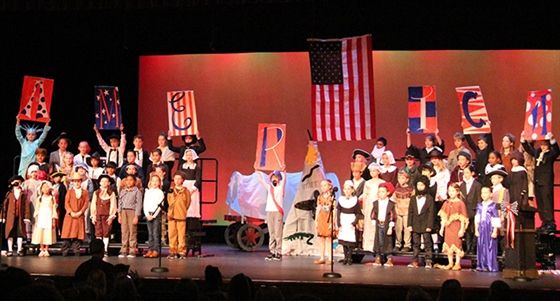

Critical Thinking
Source/Author: Mike Murphy, Headmaster
February 16, 2018
Recently, while in a discussion about how African Americans are portrayed in US history, one of our students commented that during the Third Grade Class Play, African-Americans were recognized for their efforts to oppose slavery but not for their contributions to providing freedom and liberty. Those of us who watched the production this year, or last year, or the year before (this play has become a bit of a tradition for third grade), enjoyed the show. The students loved performing and the audience enjoyed the music and historical tidbits. Yet, when put under the lens of equity and racial justice, the production clearly leaves out the contributions of African Americans and other ethnic groups who make up the fabric of our American society. The student who noted the absence of African-American contributions shown in the play is a white second grader.
Critical thinking, as important as it may be, can be sticky. There are many people from every generation who think conversations about race are unnecessary. There are people who see no connection between the acts of terrorism that brought thousands of African people to America and other nations during the 18th and 19th centuries and the mindsets that some people have regarding African-American people today. There are people who might believe it is best to forget the past and move on to the future. Nobel Laureate, holocaust survivor, and author Elie Wiesel advised his audiences about the importance of never forgetting those we have lost and those who have suffered because of acts of hatred and bigotry. Martin Luther King and many other civil rights leaders shared and still share the same message. They would be proud of our second grader who noticed the incomplete message in our production.
We are not alone in how we ignore important elements of our history. The curriculum in Germany does not dwell on the Nazi period. The French do not do a universal examination of their treatment of Jews during the Nazi invasion. Japanese curriculum does not focus on the rape of Nanking and other atrocities committed by the Japanese army in the 20th century. These are not pleasant topics but they are lessons about our past and represent the attitudes that shaped the values of many of our parents, grandparents, and great grandparents. Denial and ignorance are sure paths to a repetition of similar events.
A goal of education is to teach people to think, to question, and to form a foundation for the values that will guide their behavior. The development of great citizens requires that we and our children understand the principles of our nation and ensure that the rights and privileges are afforded to all people equally. If we are to have liberty and justice for all, we need to be sure we understand the opportunities that create these conditions, and the obstacles that prevent them. We must be willing to stand up to those who, for whatever reason, are invested in stripping liberty from others. We and our children are better citizens if we are vigilant in our commitment to liberty and justice for all.
Being educated so we know how to ask questions and think critically so we do not miss important parts of the stories and problems we are trying to understand is a good start. It seems to be happening to one second grader. I trust he is not alone.
Cheers!
Mike
Mike
























